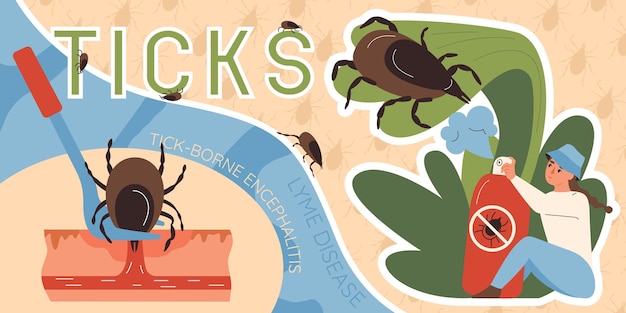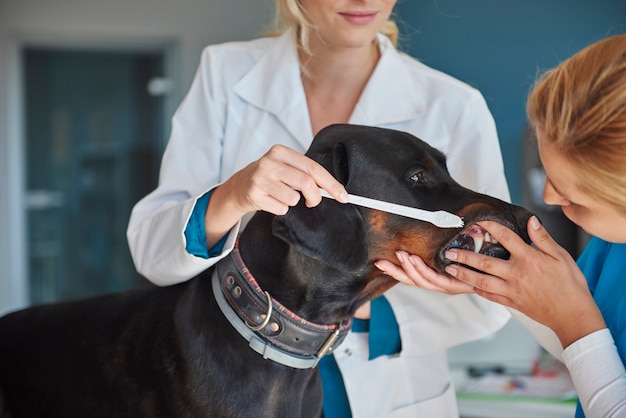Outdoor Pet Safety Tips for Long Beach Summers


Outdoor Pet Safety Tips for Long Beach Summers
Summertime in Long Beach brings warm sunshine, gentle ocean breezes, and plenty of opportunities for you and your pet to enjoy the outdoors together. However, as temperatures climb in August, pet owners face unique challenges in keeping their furry companions healthy and comfortable. Whether your dog loves running along the beach or your cat enjoys basking on a patio, it is essential to understand how to protect pets from seasonal hazards like dehydration, hot pavement, sunburn, and heatstroke. At Pet Lovers Animal Hospital Long Beach, located at 5211 Atlantic Ave, Long Beach, CA 90805, our veterinary team is committed to helping families in Long Beach and surrounding communities enjoy the summer safely with their pets.
This guide will walk you through practical outdoor pet safety tips for Long Beach summers, including how to spot the signs of heat-related illness, the reasons why pets are vulnerable in hot weather, and steps you can take to keep them safe. We will also help you understand when it is time to seek professional care and how our comprehensive veterinary services in Long Beach support your pet’s wellbeing all season long. If you are searching for a "vet near me" who truly understands local climate concerns and offers personalized advice, you are in the right place. For pets with seasonal sensitivities, our allergy testing services for pets can identify environmental triggers that may cause discomfort during the summer months.
Recognizing Summer Pet Health Risks in Long Beach
Warm weather in Long Beach can quickly turn a fun outing into a dangerous situation for pets. Even on days that feel comfortable to humans, the combination of direct sunlight, high humidity, and heat-reflecting surfaces can put dogs and cats at risk of overheating or paw pad burns. As a pet owner, understanding the signs of heat distress is one of the most important outdoor pet safety tips you can follow.
Key symptoms of overheating or heatstroke include excessive panting, drooling, lethargy, unsteady gait, and rapid heartbeat. Some pets may seek shade or water compulsively, while others may appear disoriented or collapse. In severe cases, vomiting, diarrhea, and seizures may develop. Paw pad burns can occur when animals walk on hot pavement or sand; these injuries often present as limping, reluctance to walk, or licking at the feet. Additionally, pets with lighter coats or exposed skin may be prone to sunburn, which can show up as red, tender, or peeling skin. Allergies can also flare during the summer, leading to scratching, biting, or skin irritations.
If you notice any of these warning signs, it is important to act quickly; prolonged exposure to high temperatures can result in life-threatening complications. For pet owners seeking veterinary services near me, our team at Pet Lovers Animal Hospital Long Beach encourages you to schedule an appointment if you have any concerns about your pet’s summer health.
Why Do Pets Face Unique Dangers in Summer?
Many pet owners wonder why dogs and cats are more vulnerable to heat than people. The answer lies in the way animals regulate their body temperature and the local Long Beach environment. Unlike humans, pets do not sweat efficiently; they rely primarily on panting and limited sweat glands in their paw pads to dissipate heat. This makes it much harder for them to cool down during periods of high humidity or when the air is stagnant.
In Long Beach, outdoor surfaces like asphalt and concrete can become dangerously hot by mid-day, frequently reaching temperatures that can burn sensitive paw pads within seconds. Coastal humidity may also reduce the effectiveness of panting, especially for brachycephalic breeds such as Bulldogs, Pugs, or Persian cats, which have shorter snouts and narrower airways. Pets with thick coats, elderly animals, puppies, and those with chronic medical conditions are at higher risk for heat exhaustion. Additionally, local allergens such as pollen and grasses can trigger skin flare-ups, making outdoor adventures uncomfortable for sensitive pets. If you suspect your pet is struggling with summer allergies, our veterinary dermatology services can help diagnose and manage these conditions for Long Beach pets.
Finally, the prevalence of fleas, ticks, and mosquitoes increases during the summer, exposing pets to vector-borne diseases that are more common in Southern California’s warm months. This makes up-to-date vaccinations and parasite prevention an important part of Long Beach dog summer care.
Professional Treatment and Veterinary Management
When a pet experiences symptoms of heatstroke, paw injury, or severe skin irritation, prompt veterinary intervention is vital. At Pet Lovers Animal Hospital Long Beach, our veterinarians provide comprehensive care designed for the unique climate and needs of Long Beach pets. Treatment approaches for heat-related emergencies typically include immediate cooling with room-temperature water, intravenous fluids to restore hydration, and oxygen therapy for pets with respiratory distress. Paw pad burns are treated with gentle wound cleaning, topical medications, and sometimes bandaging to prevent infection and support healing.
For allergy-related issues, our team can perform diagnostic tests to pinpoint triggers and develop a customized management plan, which may include hypoallergenic diets, antihistamines, or topical therapies. Our wellness exams for comprehensive pet health checks are a great way to catch early signs of summer stress and ensure your pet is protected from common seasonal threats. If your pet needs urgent attention for symptoms such as collapse, uncontrolled vomiting, or severe breathing difficulties, we offer emergency veterinary care for pets in urgent need to handle critical situations. Our priority is to stabilize your pet and provide compassionate care every step of the way.
It is important to remember that some conditions, such as advanced heatstroke or severe allergic reactions, can progress rapidly; immediate veterinary assessment is always recommended if you are unsure about your pet’s safety.
Preventive Steps and Home Care for Summer Safety
Most summer health risks can be avoided with a combination of awareness and proactive care. One of the most effective outdoor pet safety tips for Long Beach owners is to schedule walks or play sessions during the early morning or late evening when pavement is cooler and the sun is less intense. Always check the ground temperature with the back of your hand before allowing your pet to walk outside; if it is too hot for your skin, it is too hot for their paws.
Hydration is critical, so provide fresh water at all times both indoors and during outdoor adventures. Portable travel bowls and water bottles make it easy to offer drinks on the go. Shade is important for preventing overheating; whether you are visiting a park or relaxing in the backyard, ensure your pet has access to a cool, sheltered area. Sunscreen formulated for pets can be applied to vulnerable areas like the nose and ears, especially for light-colored animals.
Frequent brushing helps remove shedding fur and keeps your pet’s coat lighter for summer. Regular bathing with pet-safe shampoos can soothe itchy skin and wash away allergens. For pets with a history of allergies, minimizing exposure to grass, weeds, and other irritants can reduce flare-ups. Flea and tick prevention should be maintained year-round, but pay extra attention during the summer months when pests are most active.
Keep up to date with pet vaccination services to protect against diseases that may spike in warmer weather, such as leptospirosis and certain mosquito-borne illnesses. Scheduling a routine wellness examination before the peak of summer can provide peace of mind and catch emerging health concerns early.
When to Contact Your Veterinarian
Knowing when to seek professional help is critical for keeping your pet safe during Long Beach summers. Immediate veterinary attention is warranted if your pet shows signs of severe heatstroke, such as collapse, seizures, loss of consciousness, or persistent vomiting. Other red flags include rapid, noisy breathing that does not improve with rest, significant paw pad injuries, or allergic reactions with facial swelling and difficulty breathing.
If your pet’s symptoms are mild but not improving with home care, or if you are uncertain about the severity of their condition, call our veterinary team for guidance. At Pet Lovers Animal Hospital Long Beach, we recommend scheduling an appointment for any unexplained lethargy, persistent skin irritation, or if your pet’s usual summer routine seems to be causing discomfort. Our veterinarians can provide tailored advice based on your pet’s age, breed, and medical history, ensuring the most effective Long Beach dog summer care.
Many pet owners search for a "quality vet near me" when emergencies arise, but proactive care and open communication with your primary veterinarian can prevent most issues before they become critical. We are here to support you with preventive care, diagnostics, and treatment throughout the summer and beyond.
Keeping Your Pet Safe and Happy All Summer Long
The joys of summer in Long Beach are best enjoyed when you and your pet feel safe, prepared, and supported by a trusted veterinary partner. By following these outdoor pet safety tips, you can minimize risks and maximize fun during the warmest months of the year. Remember to stay vigilant for signs of overheating, prioritize hydration and paw protection, and keep your pet’s vaccinations and parasite prevention up to date.
If you have questions or would like to schedule a wellness exam, our compassionate veterinary professionals are here to help. Contact Pet Lovers Animal Hospital Long Beach at (562) 349-0000 or visit our Long Beach location to experience the difference a quality vet near me can make for your pet’s health. For ongoing Long Beach dog summer care, we invite you to explore our comprehensive wellness examination services or reach out to discuss your pet’s individual needs. Your pet’s safety and happiness are our top priorities, and we look forward to supporting your adventures together all summer long.
This article is intended for informational purposes only and should not replace professional veterinary care. If you have concerns about your pet’s health, please schedule an appointment with your veterinarian.


















